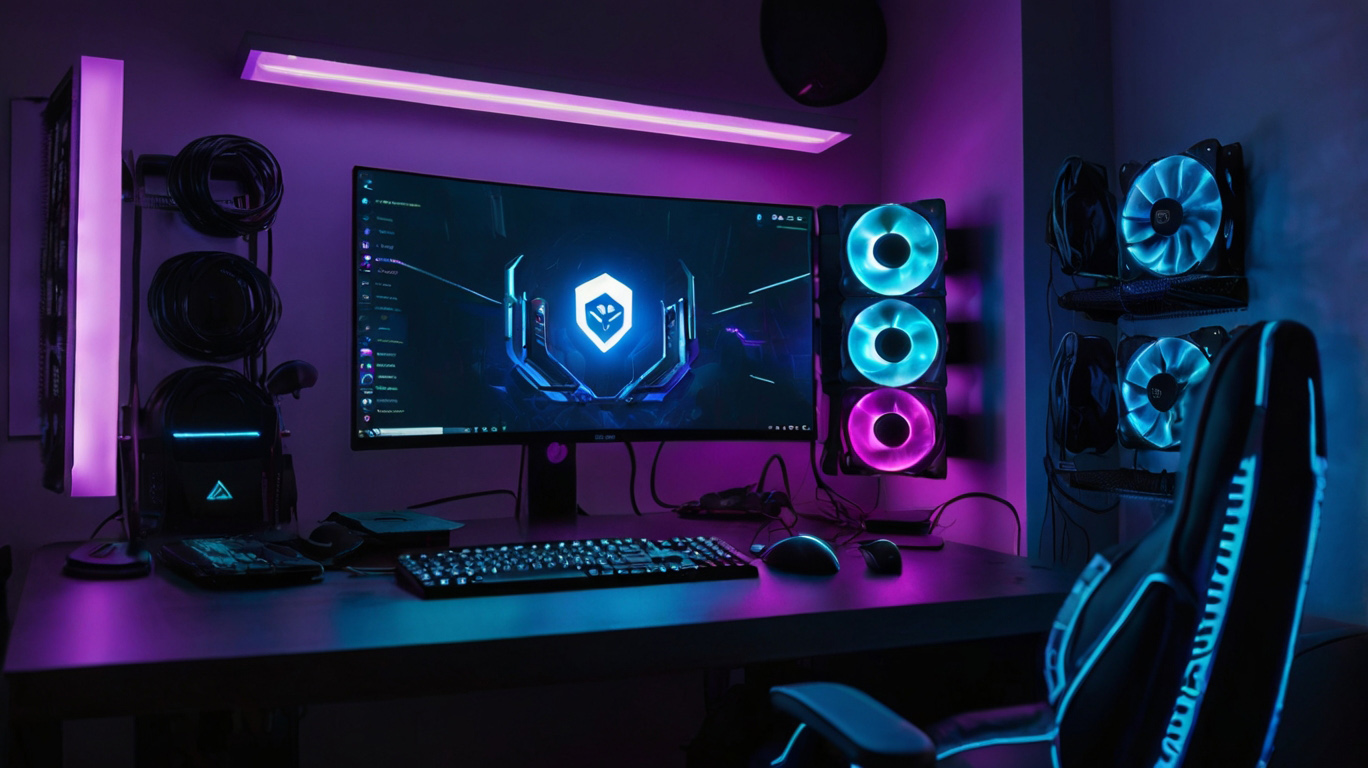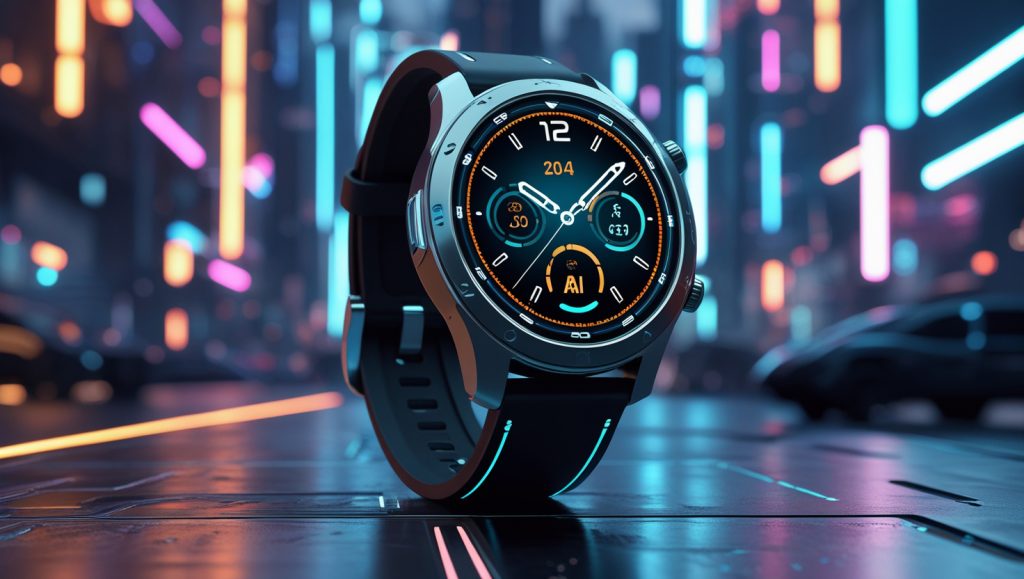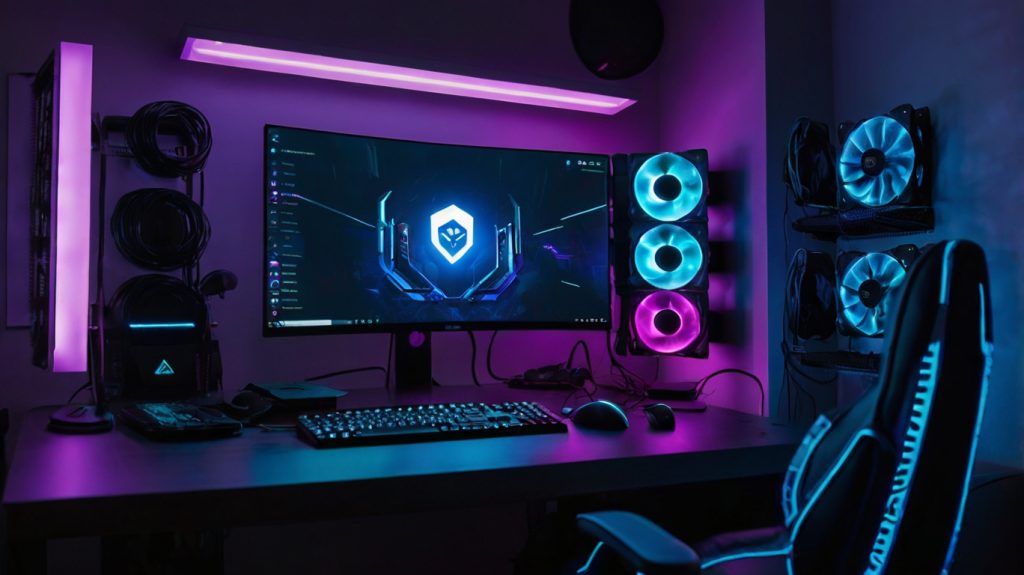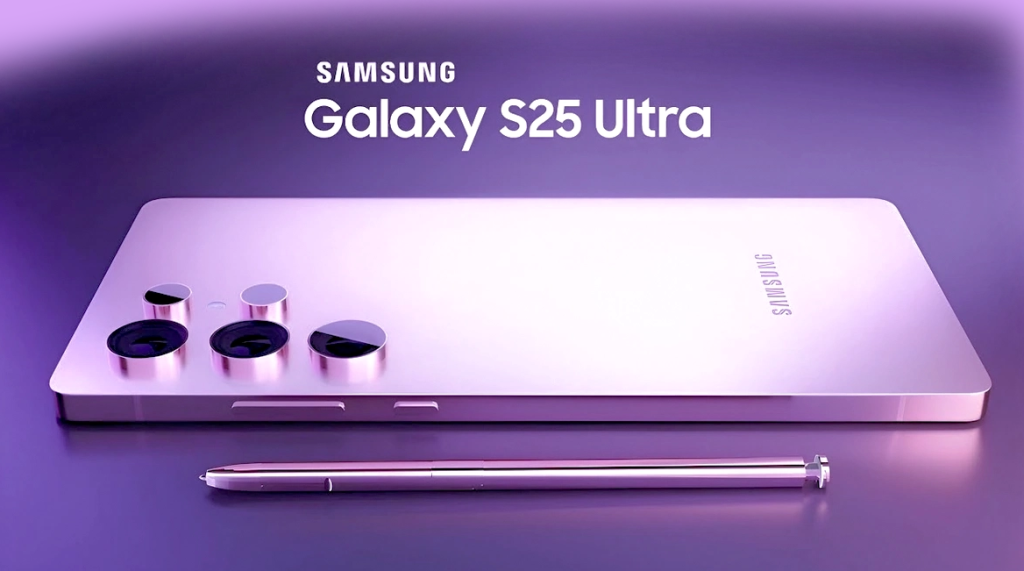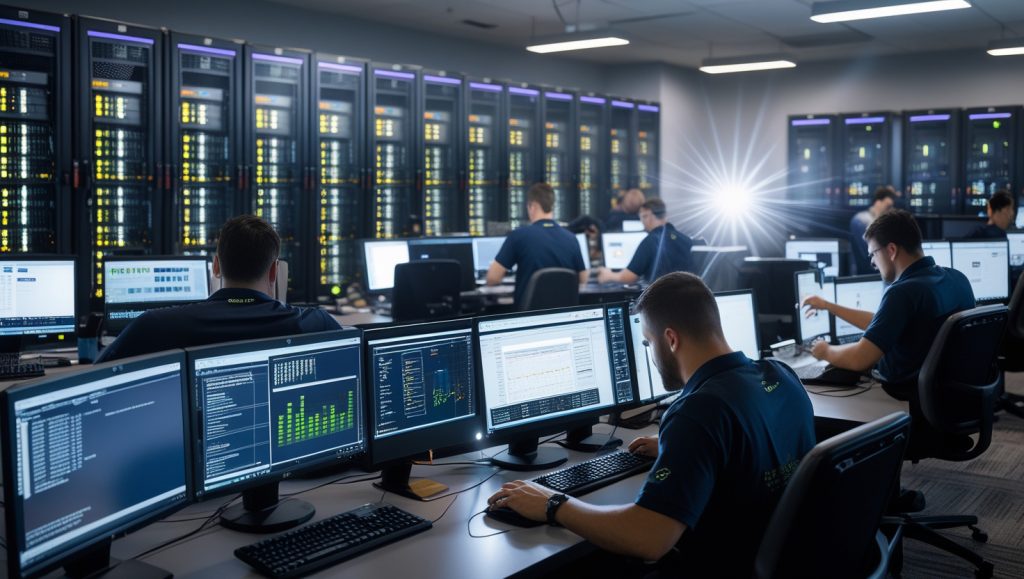Gaming computers are no longer a luxury; they’re a gateway to immersive adventures, intense competitions, and endless creativity. Whether you’re a professional gamer, a casual enthusiast, or someone who dabbles in game development, a powerful gaming computer can redefine your experience. In this comprehensive guide, we’ll dive deep into everything you need to know about gaming computers—from their components and configurations to trends and maintenance tips—so you can make an informed decision for your setup.
Table of Contents
What is a Gaming Computer?
A gaming computer is a specially designed personal computer optimized for playing video games. Unlike standard PCs, gaming computers are built to handle high-performance tasks such as rendering intricate graphics, running large game files, and delivering smooth frame rates. These machines feature powerful hardware components such as advanced graphics cards, faster processors, and ample RAM to provide a seamless gaming experience.
Advantages of Gaming Computers:
- Superior performance for gaming and multitasking.
- Ability to run the latest games at high settings.
- Great for content creation, including video editing and streaming.
Components of a Gaming Computer
Understanding the components of a gaming computer is key to building or buying the perfect setup. Here’s a breakdown of the essential parts:
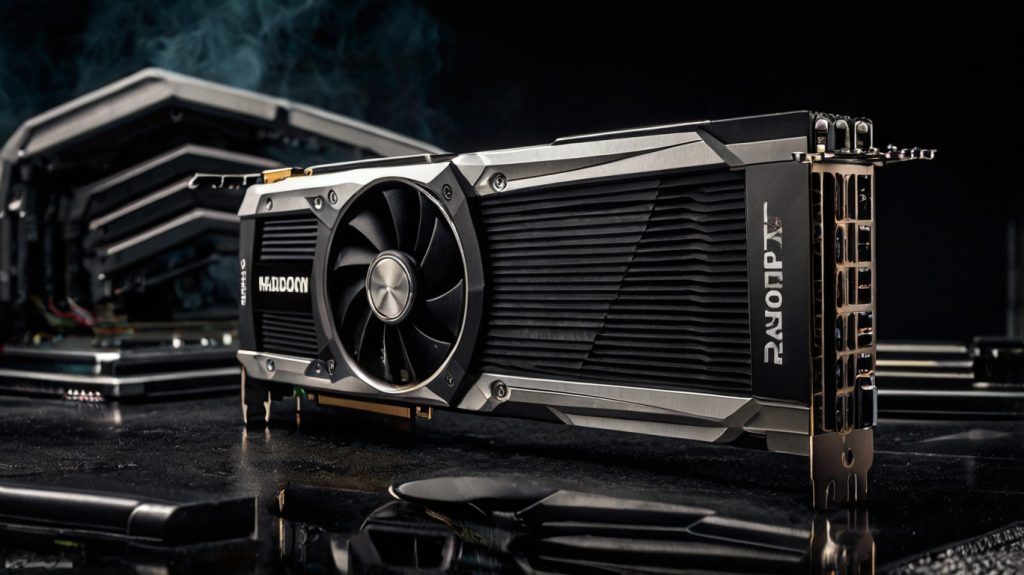
Graphics Processing Unit (GPU)
The GPU is the heart of any gaming computer. It handles rendering graphics and ensuring smooth gameplay.
- Importance: A good GPU ensures high-quality visuals and stable frame rates.
- Top Picks for 2025:
- Tip: Choose a GPU that matches your gaming monitor’s resolution and refresh rate.
Processor (CPU)
The CPU is the brain of the computer, responsible for executing instructions and handling in-game physics and AI.
- Importance: A fast CPU prevents bottlenecks, ensuring smooth gameplay.
- Recommended CPUs:
- Tip: For gaming, prioritize single-core performance over multi-core.
Memory (RAM)
RAM affects how many tasks your computer can handle simultaneously and how quickly data is accessed.
- Recommended RAM for Gaming:
- 16GB: For most modern games.
- 32GB: For high-end gaming and multitasking.
- Tip: Opt for DDR5 RAM for better performance.
Storage
The debate between SSDs and HDDs is ongoing, but for gaming, SSDs are the clear winner.
- SSD Benefits:
- Faster load times.
- Quicker boot-up speeds.
- Ideal Setup:
- 1TB SSD for games and applications.
- 2TB HDD for additional storage.
Cooling Systems
Gaming generates a lot of heat, so a robust cooling system is essential.
- Options:
- Air cooling: Budget-friendly and efficient.
- Liquid cooling: Quieter and better for overclocked systems.
- Tip: Keep airflow optimal by ensuring proper cable management.
Peripherals and Accessories
A gaming setup is incomplete without the right peripherals.
- Key Peripherals:
- Gaming monitor (144Hz or higher refresh rate).
- Mechanical keyboard and gaming mouse.
- Headset with surround sound.
- Tip: Invest in ergonomic accessories to enhance comfort.
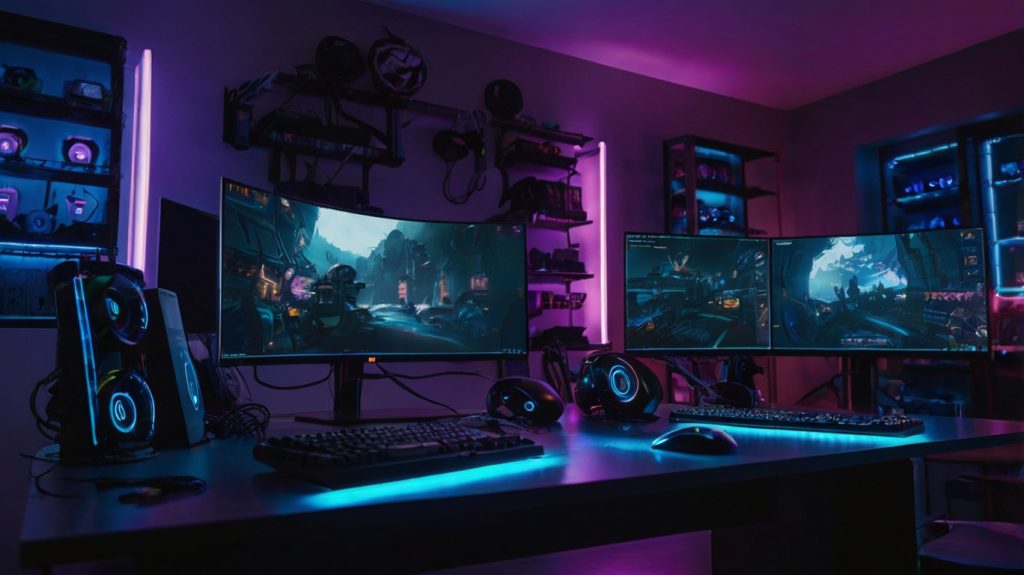
Prebuilt vs. Custom-Built Gaming Computers
One of the biggest decisions you’ll make is whether to buy a prebuilt gaming computer or build your own. Here’s a comparison:
Prebuilt Gaming Computers
- Pros:
- Ready to use out of the box.
- Warranty and customer support.
- Cons:
- Limited customization.
- Higher cost.
Custom-Built Gaming Computers
- Pros:
- Tailored to your needs.
- Often more cost-effective.
- Cons:
- Requires technical knowledge.
- No single warranty for all parts.
Which Should You Choose?
- Go prebuilt if you value convenience.
- Opt for custom-built if you want full control over your system.
Budget Guide: How Much Should You Spend?
The price of a gaming computer depends on your requirements. Here’s a budget breakdown:
Low-Budget Gaming Computers ($500-$1000)
- Suitable for casual gaming.
- Recommended specs:
- GTX 1650 GPU or equivalent.
- Intel Core i5 or Ryzen 5 CPU.
- 8GB RAM.
Mid-Range Gaming Computers ($1000-$2000)
- Ideal for most gamers.
- Recommended specs:
- RTX 3060 or 3070 GPU.
- Intel Core i7 or Ryzen 7 CPU.
- 16GB RAM.
High-End Gaming Computers ($2000+)
- Perfect for enthusiasts and professionals.
- Recommended specs:
- RTX 4090 GPU.
- Intel Core i9 or Ryzen 9 CPU.
- 32GB+ RAM.
Cost-Saving Tips
- Look for seasonal discounts.
- Upgrade components gradually instead of buying everything at once.
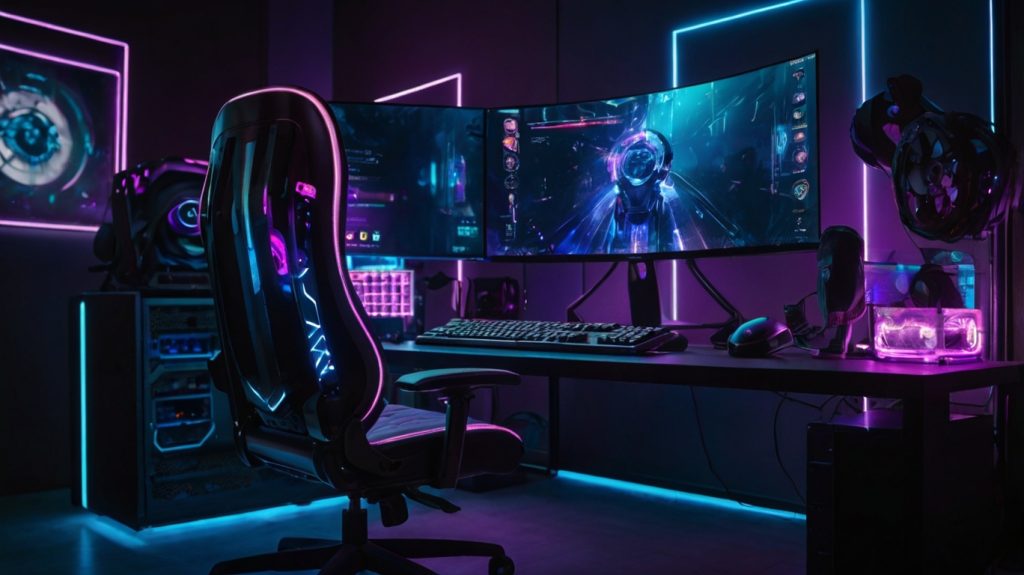
Top Gaming Computers of 2025Here’s a list of the best gaming computers this year:
- Alienware Aurora R16: A powerhouse with sleek design.
- ASUS ROG Strix GA35: Excellent for 4K gaming.
- MSI Trident 3: Compact yet powerful.
Each of these models offers a unique combination of performance, aesthetics, and value for money.
Essential Software for Gaming Computers
Operating Systems
- Windows remains the go-to OS for gamers.
- Linux distributions like Ubuntu are viable alternatives for advanced users.
Game Launchers
- Steam, Epic Games Store, and Origin are popular platforms.
Performance Tools
- MSI Afterburner for overclocking.
- Razer Cortex for system optimization.
Maintaining Your Gaming Computer
Cleaning Tips
- Dust your PC every 3-6 months.
- Use compressed air for delicate components.
Software Maintenance
- Update drivers regularly.
- Perform routine malware scans.
Upgrading Components
- Replace aging parts to keep your system up to date.
Gaming Trends in 2025
VR-Ready Gaming Computers
- With the rise of virtual reality, VR-ready systems are becoming standard.
4K and 8K Gaming
- Demand for ultra-high resolution gaming continues to grow.
Streaming and eSports
- Gaming PCs are increasingly optimized for streaming and competitive gaming.
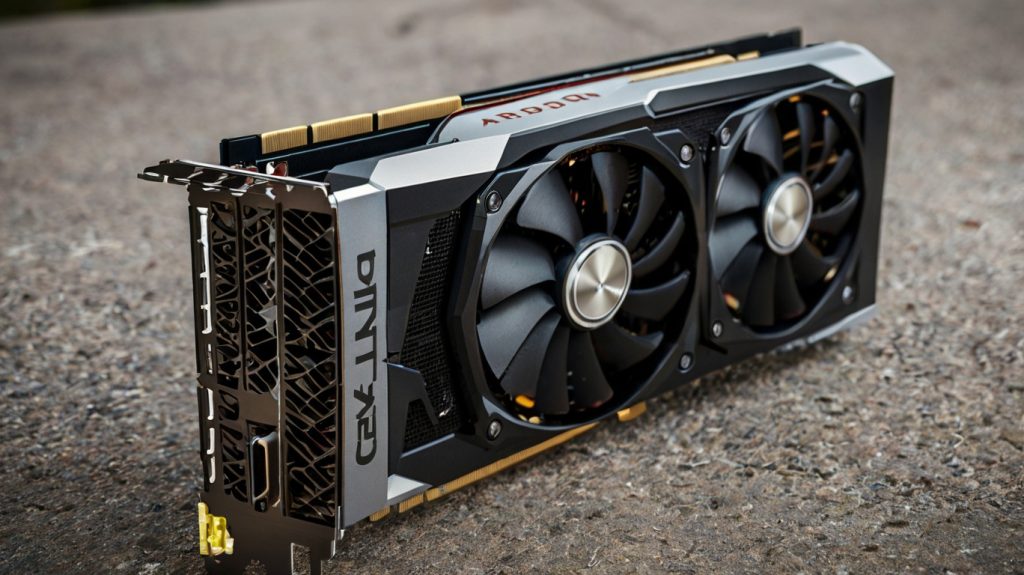
Conclusion
Investing in the right gaming computer can elevate your gaming experience to new heights. Whether you’re a beginner or a seasoned pro, understanding your needs and the latest trends is essential. With the insights provided in this guide, you’re now equipped to choose the perfect gaming computer for 2025.
Ready to level up your gaming? Explore our recommendations and start building your dream setup today!

